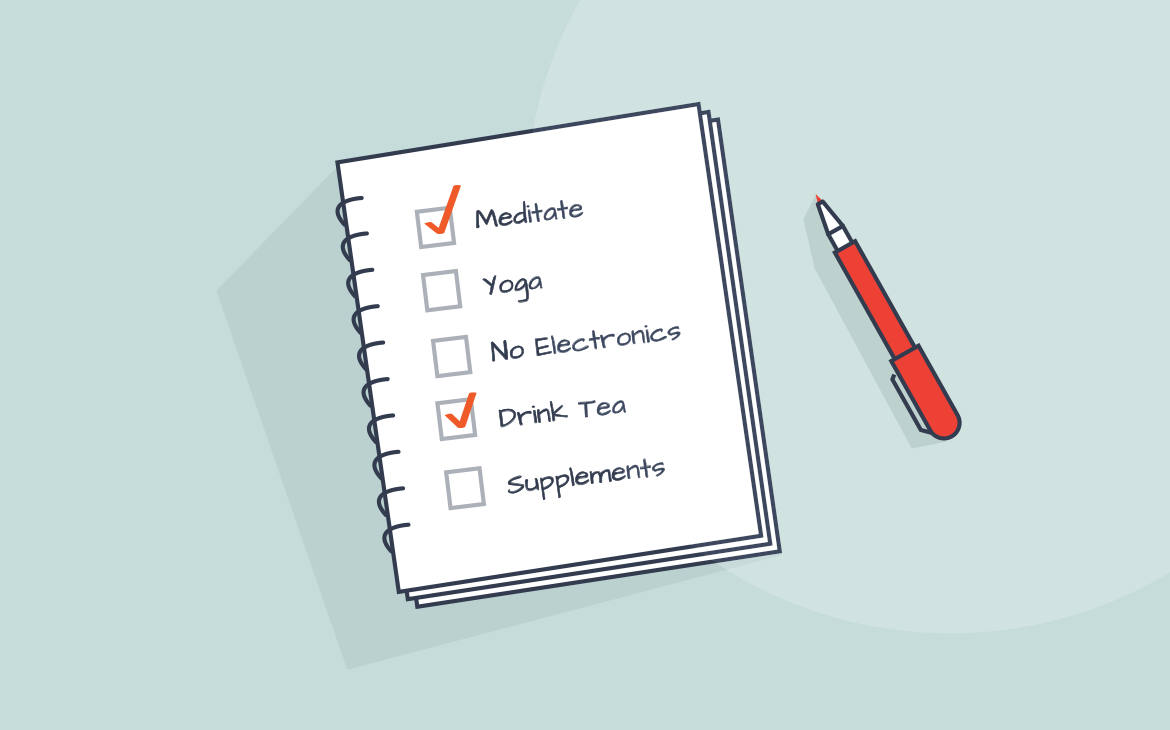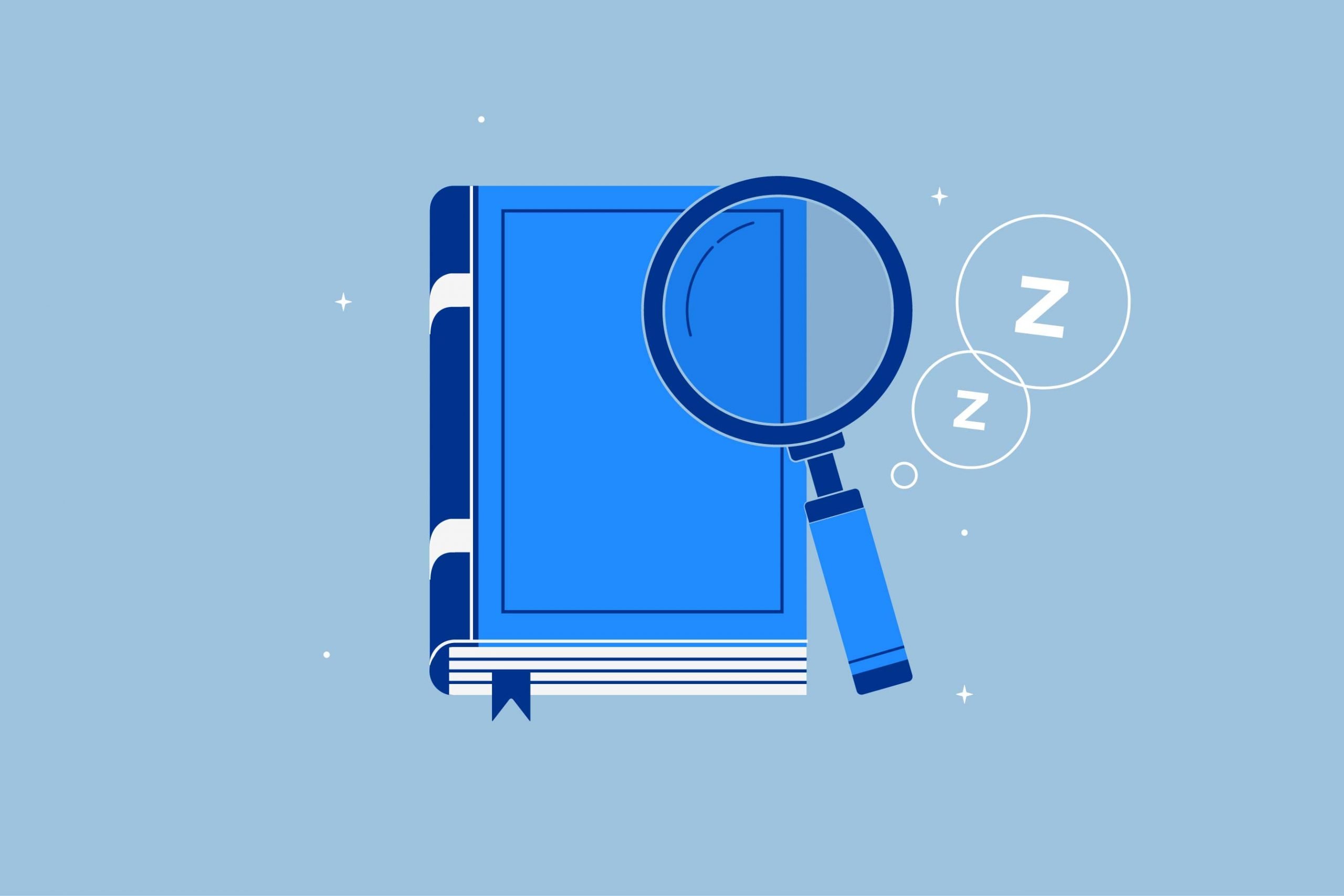See how sleep experts get their best rest, and how to create your own bedtime routine for more relaxing, restful nights.
Are your evening habits (or lack thereof) keeping better rest at bay? If you aren’t getting great sleep as often as you’d like or have trouble settling down at night, it could be worth taking a closer look at your bedtime activities.
What you do in the hours before bed and when you do it can have an effect on how easy it is to fall asleep and stay asleep throughout the night. It’s often mentioned that adopting a consistent evening routine can help with insomnia, and research finds that certain habits like a warm bath Verified Source National Library of Medicine (NIH) World’s largest medical library, making biomedical data and information more accessible. View source and reducing screen time correlate with quality sleep.
Sleep Experts Share Their Bedtime Routines & Tips
Sleep specialists and health professionals regularly help people work on improving their habits for better rest. Since they have plenty of insight into what works and what doesn’t, we wanted to know what strategies they actually use day to day to keep their own sleep on track.
So, to get a better idea of what effective bedtime routines look like in the real world, we sought out the advice of a few experienced sleep experts. Here’s what the pros do get their best rest:
Dr. Robert S. Rosenberg
1. About one hour before bedtime, I like to have a small smoothie. I make sure it has tart cherry juice, which in a recent study done at Louisiana University, has been shown to increase sleep, because of its melatonin content as well as phytonutrients that inhibit the breakdown of tryptophan.
I also include a banana that contains tryptophan, magnesium, potassium and vitamin B6 (Pyridoxine). Tryptophan is converted to serotonin and melatonin. Magnesium and potassium relax muscle and nerve cells and B6 is necessary for the conversion of tryptophan into serotonin. I add some almond milk for more tryptophan and magnesium. Lastly, some flaxseed for omega 3’s that tend to be calming.
2. Progressive Muscle Relaxation. This technique decreases levels of sleep preventing stress. It promotes both psychological and muscle relaxation. PMR also inhibits the sympathetic (fight or flight) nervous system and increase output from the relaxing parasympathetic nervous system. Incidentally, I am incorporating these techniques into my patient’s insomnia program.
3. A cup of green or chamomile tea. Green tea contains theanine, an amino acid that is able to cross the blood-brain barrier. It increases alpha waves in the brain. Alpha waves are seen in electroencephalograms during relaxed wakefulness just before sleep. This is probably one of the ways that theanine induces a relaxed state and decreases anxiety. Chamomile contains apigenin, a plant-based compound, that stimulates calming gabba receptors in the brain and helps to promote sleep.
4. I make my bedroom a no computer, no electronics zone. That includes television and cell phones. All of these devices emit blue melatonin suppressing light.
Dr. Robert S. Rosenberg, is a Board Certified Sleep Medicine Physician and author of Sleep Soundly Every Night, Feel Fantastic Every Day.
Dr. Carolyn Dean
1. Magnesium is known as the anti-stress, anti-anxiety mineral and is a natural sleep aid. Numerous studies have shown its effectiveness in lowering anxiety and reducing stress levels as well as helping with deeper more restful sleep. Over 75% of women do not get their recommended daily allowance of this mineral which is a co-factor in 700-800 enzyme reactions in the body.
A magnesium deficiency can magnify stress and anxiety making it harder to go to sleep and stay asleep. Serotonin, the feel-good brain chemical that is boosted artificially by some medications, depends on magnesium for its production and function.
Not all forms of magnesium are easily absorbed by the body. Magnesium citrate powder is a highly absorbable form that can be mixed with hot or cold water and sipped at work or at home throughout the day.
2. Electrical appliances and electromagnetic radiation in the bedroom is another factor to be aware of that makes falling asleep and staying asleep more difficult. Keep these to a minimum, do not sleep next to your cell phone, computers, tv, etc.
3. Room temperature. 68 degrees is ideal, warmer and it can disrupt sleep and make it harder to fall asleep.
4. The darkness of bedroom. The darker the better.
5. Eating before bedtime affects sleep quality. Avoid sugar and simple carbs, all of these affect sleep quality.
6. Exercise before bedtime can also disrupt sleep.
Dr. Carolyn Dean, MD, ND is a sleep expert, a medical doctor and nutrition expert, author of “The Complete Natural Medicine Guide to Women’s Health”. Dr. Dean also serves as the medical director for the Nutritional Magnesium Association.
Dr. Richard Shane
This is my personal bedtime routine:
1. I drink plenty of fluids during the day and then stop drinking at least three hours before bedtime.
2. I do my best to not be on electronic devices during the 30 minutes before bed. Light from electronic screens can block the brain’s production of melatonin, which then makes sleep difficult. Therefore if I watch a movie on television, I use Blue-blocking glasses, which allows me to watch, yet not have it affect melatonin.
3. Bright house lights can also block the brain’s production of melatonin, so I have dimmers on all of the lights in my home. Sufficient light to function, yet dim enough so it doesn’t block the brain’s production of melatonin.
4. During the evening, even with my eyes open, I breathe the Sleep Breath, which is part of the Sleep Easily method I developed. That deeply relaxes me.
5. I never watch the news or read an online newspaper in the evening. Too disturbing. I read news once during the day so I can be informed without it disturbing my sleep.
6. When we sleep, our body temperature drops. Having a cooler room temperature helps the body cool a bit, which helps with sleep. So I have the house thermostat set to 55 degrees starting at 10:30. In reality, the temperature usually only goes down to 65.
7. I like total darkness, so I have blackout shades in my bedroom.
8. When it’s time to go to bed, in my bedroom, I clean up any clutter because a clutter-free bedroom helps calm my mind.
9. In my bedroom, I hang over and touch my toes. That stretches my hamstring muscles and the muscles in the back of my neck, releasing tension I stored during the day.
10. I sit in a chair for a few minutes, with my eyes closed, breathing my Sleep Breath without distractions. I soon have the body feeling of easing toward sleep and then I get into bed.
I put one hand on my heart and another on my abdomen to calm those two key areas, which then calms body and mind.
I allow my tongue to be calmer, which is an element of the Sleep Easily method. I then use the other steps to get closer and closer to sleep without the pressure of having to get all the way to sleep. My mind rests in calmness and my body eases into sleep.
Dr. Richard Shane, Ph.D. is the Behavioral Sleep Specialist for New West Physicians and founder of Sleep Easily sleep solution.
Amy Landolt, Acupuncturist
1. I try to go to bed as soon as I feel tired. If you miss that window, you can get a second wind and it is difficult to get to sleep.
2. I avoid using electronics at least one hour before bed. I actually wait to clean up from dinner until close to bedtime during my electronics-free time. (My grandmother must be rolling in her grave at my leaving the dirty dishes that long!).
3. Right before I turn off the lights, I review at least five things for which I’m grateful.
My bedroom is conducive for sleep – I have room darkening shades and do not have clocks or electronics with lights. I typically diffuse an Essential Oils Calming Blend. I usually fall asleep pretty quickly. However, if I am expecting to have a harder time falling asleep because of stress, I will do some stretches, spritz my pillow with lavender and/or drink Sleepmix tea with catnip, skullcap, hops, chamomile, peppermint and yarrow.
Other tips include Acupuncture, and Magnesium citrate supplements — a magnesium deficiency can cause insomnia, and according to the World Health Organization, most Americans have a magnesium deficiency.
Amy Landolt is the owner of Northshore Acupuncture Center and a Licensed Acupuncturist who specializes in the treatment of sleeping issues.
Dr. Gregg Schneider
I personally try and go to bed at the same time every day and shoot for 8 hours of sleep. I don’t ingest caffeine after 2:00 pm. I exercise 3-4 days per week which helps with falling asleep.
If you have trouble falling asleep I recommend:
- Seditol, a blend of magnolia and jujube 1 hour prior to bedtime.
- 1.5 mg of melatonin 45 minutes prior to bedtime can aid in falling asleep.
- 150mg of bioactive milk peptides, can also be helpful.
These supplements can be used alone or in combination.
Dr. Gregg Schneider is a dentist/nutritionist and a sleep expert treating patients with apnea and sleep disturbances.
The Takeaways
We all have different schedules, sleep styles and preferences, such as the best time to eat before bed. So the key is to find a rhythm that works for you.
Your routine might be relaxing with a good book, a warm bath or a warm drink, even a spa routine or deep breathing — whatever helps you clear stress, get comfortable and prepare for bed.
The sleep experts we interviewed all had unique takes on bedtime routines, but there are a couple of important things many of them share, including.
- Being mindful of electronics usage and light in the evening.
- Keeping bedrooms dark and cool.
- Eating a balanced diet, and supplementing with proven things like magnesium for sleep if needed.
- Getting regular exercise and activity during the day.
On top of improving sleep hygiene habits and developing a good bedtime routine, upgrading to the best mattress for your sleep style can boost your quality of rest.
What does your bedtime routine look like, and what do you find most effective at winding down?
About the author
Rosie Osmun, a Certified Sleep Science Coach, brings a wealth of knowledge and expertise to the health and wellness industry. With a degree in Political Science and Government from Arizona State University College of Liberal Arts and Sciences, Rosie's academic achievements provide a solid foundation for her work in sleep and wellness. With over 13 years of experience in the beauty, health, sleep, and wellness industries, Rosie has developed a comprehensive understanding of the science of sleep and its influence on overall health and wellbeing. Her commitment to enhancing sleep quality is reflected in her practical, evidence-based advice and tips. As a regular contributor to the Amerisleep blog, Rosie specializes in reducing back pain while sleeping, optimizing dinners for better sleep, and improving productivity in the mornings. Her articles showcase her fascination with the science of sleep and her dedication to researching and writing about beds. Rosie's contributions to a variety of publications, including Forbes, Bustle, and Healthline, as well as her regular contributions to the Amerisleep blog, underscore her authority in her field. These platforms, recognizing her expertise, rely on her to provide accurate and pertinent information to their readers. Additionally, Rosie's work has been featured in reputable publications like Byrdie, Lifehacker, Men's Journal, EatingWell, and Medical Daily, further solidifying her expertise in the field.
View all posts





